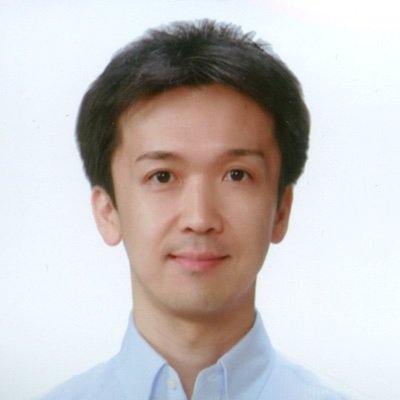
Ani Deshpande
@anideshpandelab
Followers
905
Following
2K
Media
84
Statuses
1K
Prof. at SBP, La Jolla. Epigenetics, Leukemia, Stem Cells. View everything from an evolutionary perspective. LinkedIn: https://t.co/6l7KYyPTZA
La Jolla, CA
Joined November 2014
Really excited that our manuscript on Synovial Sarcoma is now online. Link to Open Access PDF: https://t.co/XieopaPRvN A summary🧵 :
1
2
20
Most current drug discovery efforts is structure-based eg. create small molecules or antibodies that best binds X. However, a drug may not drive its efficacy from its strongest binder. Taking a step away from structure-paradigm, we reason that if a CRISPR knockout of a gene
10
52
206
Episode 5 online now! A 60 second video clip in which we chronicle the fascinating story behind Continuous Glucose Monitors (CGMs) and of Adam Heller the man who built technologies that advanced these devices.
1
0
2
Please check out this thread on our latest paper in @Nature on HSC pool size regulation. https://t.co/hJLrLYXXEG Phenomenal collaboration with the one and only @Gritsman_lab, and driven by the outstanding @ShoTakeishi! @EinsteinCellBio @Einstein_SCI @EinsteinMed
Excited to share our latest work @Nature! We show that the total number of hematopoietic stem cells (HSCs) in the body is restricted, challenging the classical model that HSC numbers are determined locally by the niche and introducing a new paradigm. (1/9) https://t.co/kvFqNQ8Nxb
17
17
134
@AnaghaD4 @sbpdiscovery @SBPCancerCenter @soragnilab And terrific computational support from Pramod Bala and Rabi Murad without whose help this wouldn't have been possible.
0
0
0
This project was led by a highly talented grad student Rema Iyer with help from others in the lab esp. @AnaghaD4 and fantastic collaborators at @sbpdiscovery and @SBPCancerCenter Ben Finlay, @ Vuori Lab Gerard Brien (Edinburgh), Hiromi Wetterstein (UCSD) and @soragnilab (UCLA).
1
0
0
Finally, TAK-981 robustly suppressed tumor growth in xenograft models, reducing tumor growth, decreasing SS18::SSX protein levels, and lower cellularity. This study strongly indicates SUMO2 inhibition as an effective therapeutic strategy against synovial sarcoma in vivo.
1
0
0
Prior studies (McBride et al., Benabdallah N. et al., Boulay G. et al.,) have demonstrated H2AK119ub activation by SS18::SSX fusions. We observed that SUMO2 inhibition substantially reduced H2AK119ub, esp. at fusion target sites corresponding with fusion loss.
1
0
0
These results were borne out by CUT&Tag which showed strongly diminished SS18::SSX fusion protein on chromatin after SUMO2 inhibition using TAK-981.
1
0
0
Surprisingly, SUMO2 inhibition did not just reverse downstream targets, but also SS18::SSX protein levels themselves. Both shRNA and TAK-981 treatments lowered fusion protein levels across different variants (SSX1 and SSX2), establishing SUMO2 as a regulator of the fusion itself.
1
0
0
This was a surprise - reminiscent of candidates that target the fusion protein itself - or immediately proximal targets. Excited by this, we tested whether SUMO2 inhibition targets the fusion protein.
1
0
0
Fusion activated oncogenic targets (e.g., HOXA10, SUZ12, TYMS) were down-regulated, while fusion-repressed genes such (e.g., KLF4, GADD45B) were derepressed upon SUMO2 inhibition.
1
0
0
Surprisingly, transcriptomic studies revealed that SUMO2 inhibition showed a dramatic reversal of the transcriptional program of SS18::SSX fusions described in Jerby-Arnon L, et al. (Regev Lab).
1
0
0
We were also excited about SUMO2 because of the availability of TAK-981, a potent, clinical-stage SUMO2 inhibitor which strongly suppressed growth of synovial sarcoma lines, increased apoptosis, and dramatically reduced colony-forming ability of synovial sarcoma cells at low nM.
1
0
0
We then conducted targeted CRISPR screens in vitro and in vivo using synovial sarcoma cells, and SUMO2 emerged as one of the strongest dependencies in both - validating DepMap predictions. Since SUMO2 was also a SS18::SSX fusion target, was prioritized for further studies.
1
0
0
So, we began with the dependency maps dataset (DepMap) to ask: which genes are selectively essential for synovial sarcoma compared to other cancers? In addition to expected genes (SS18, SSX, BRD9), one pathway jumped out: SUMOylation. And right at the core of this was SUMO2.
1
0
0
A few years ago, we got interested in Synovial Sarcoma - an aggressive, difficult-to-treat cancer. There is a single fusion protein - the SS18::SSX fusion - that drives this malignancy, but there isn’t much known about actionable vulnerabilities in this disease.
1
0
0


